17. Take Shelter (2011, Jeff Nichols)
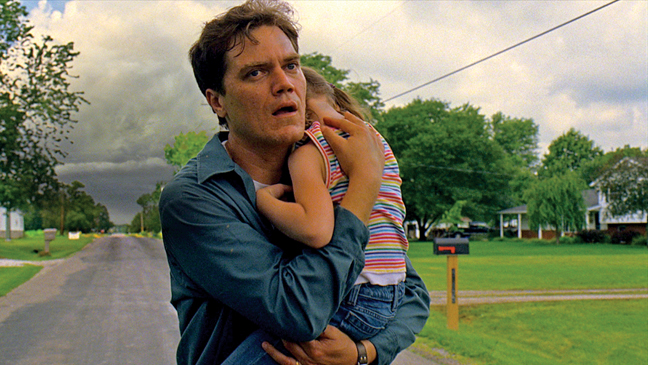
Many directors like showing off their full skill set in impressive ways, when making their second feature film. Jeff Nichols takes on a bigger challenge than in his debut with “Take Shelter” (impressive CGI for example), but delivers a mostly subdued film.
Walking the fine line between a disaster film and a psychological study, Nichols never depends on flashy effects or quick cuts and instead manages to build an intense and paranoid atmosphere. He himself said in interviews, that it was a film about fatherhood, and it shows in both the intimate depiction of family life and in the intense fear of being misunderstood by loved ones.
After 2 hours of suspenseful build up , the ending finally arrives and burns itself into the viewer’s memory, like only very few can.
16. Raising Arizona (1987, Ethan & Joel Coen)
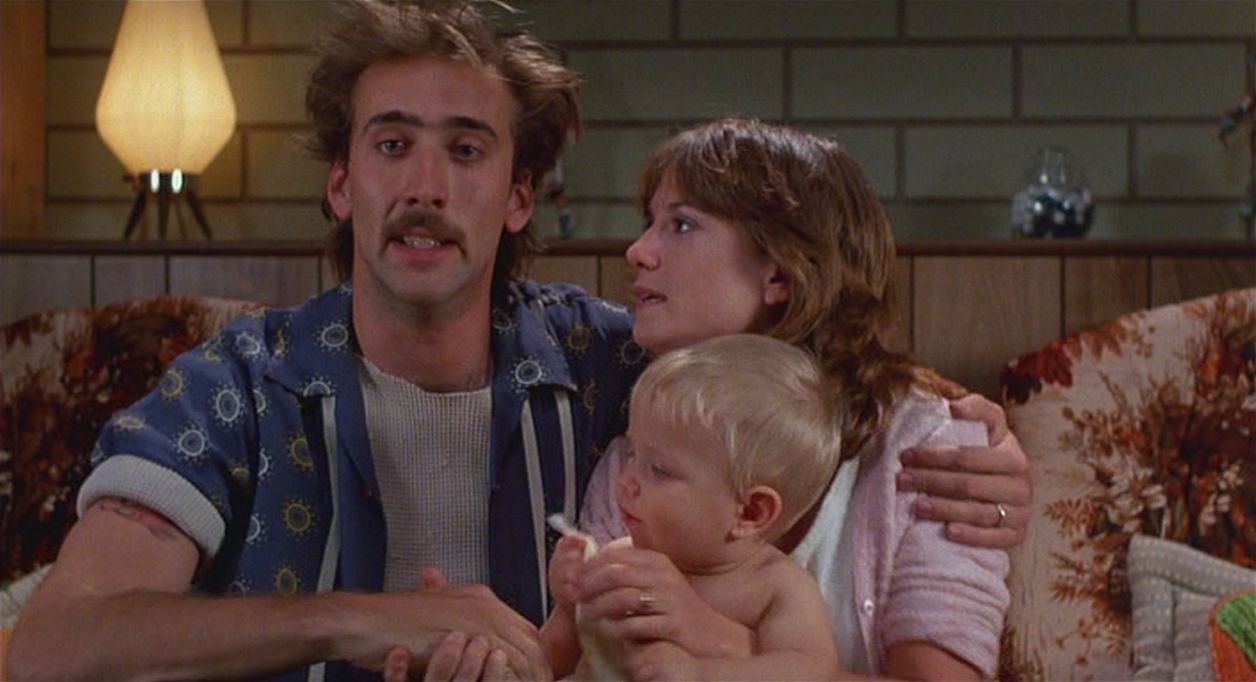
After their dark and gritty debut “Blood Simple”, the Coen Brothers decided to show us a side of them, that we know very well by now: they’re damn funny.
An array of visual gags and hilarious one-liners (“son, you got a panty on your head”) only topped off by an overly poetic voice-over delivered by a dim-witted Nicolas Cage. He is the lovable criminal H.I. McDonald, who falls in love with and marries a police officer (Holly Hunter).
When they find out, that she can’t have children, they decide to kidnap a business tycoon’s newborn, since he already has so many. Of course he doesn’t approve, and all hell breaks loose. What follows is a film, that is one of the funniest and probably the sweetest and least cynical films the Coens ever made.
15. Days Of Heaven (1978, Terrence Malick)
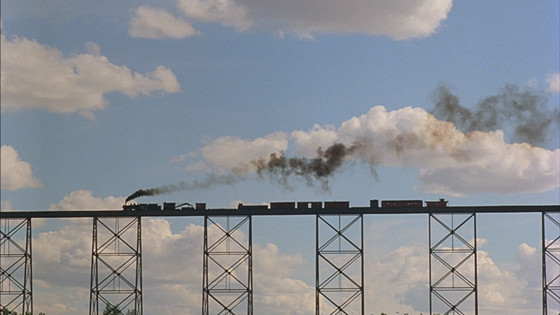
Terrence Malick is one of the most mysterious figures to ever work in the film business. Therefore it shouldn’t be a surprise that most of his films can be described as mysterious too. Everything in his films, from the narration, to the soundtracks and imagery, helps build an atmosphere that is uniquely his own.
Days Of Heaven is his second film and right after it he disappeared for 20 years, not making a film until “The Thin Red Line”, which was released in 1998. The film itself is a romance and a perfect portrayal of a certain time and place.
Malick depicts 1916 Texas in images that often put the film far in the front of “most beautiful cinematography” lists, that cinephiles love doing. But Days Of Heaven is not only beautifully photographed , the film tells the story of a love triangle, that is very well realized.
Those who know Malick won’t be surprised to hear that his main concern isn’t telling the story, but instead does what he does best: he creates an atmosphere and a physicality to the image, that only very few directors can. If one can get into this kind of cinematic experience then Days Of Heaven is not only a moving experience, but one of the most memorable experiences ever put to screen.
14. Boogie Nights (1997, Paul Thomas Anderson)
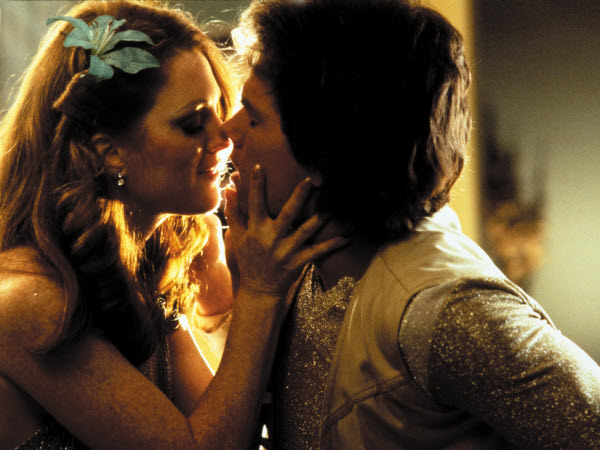
Admittedly taking the influences of Robert Altman and Martin Scorsese, Paul Thomas Anderson’s Boogie Nights often faces the criticism of lacking originality (as do his other films up to Punch- Drunk-Love).
Yet the film is undeniably his own and carries a lot of his personality. A surrogate “family” (played by Anderson regulars) surrounding a father figure, who is a director (Burt Reynolds), live through the ups and downs of the porn industry of the 1970s and 80s.
Anderson fully embraces the “enfant terrible” stigma as he visually stuns with virtuoso techniques (tracking shots especially), while also delivering fully on an emotional level.
13. Adaptation (2002, Spike Jonze)
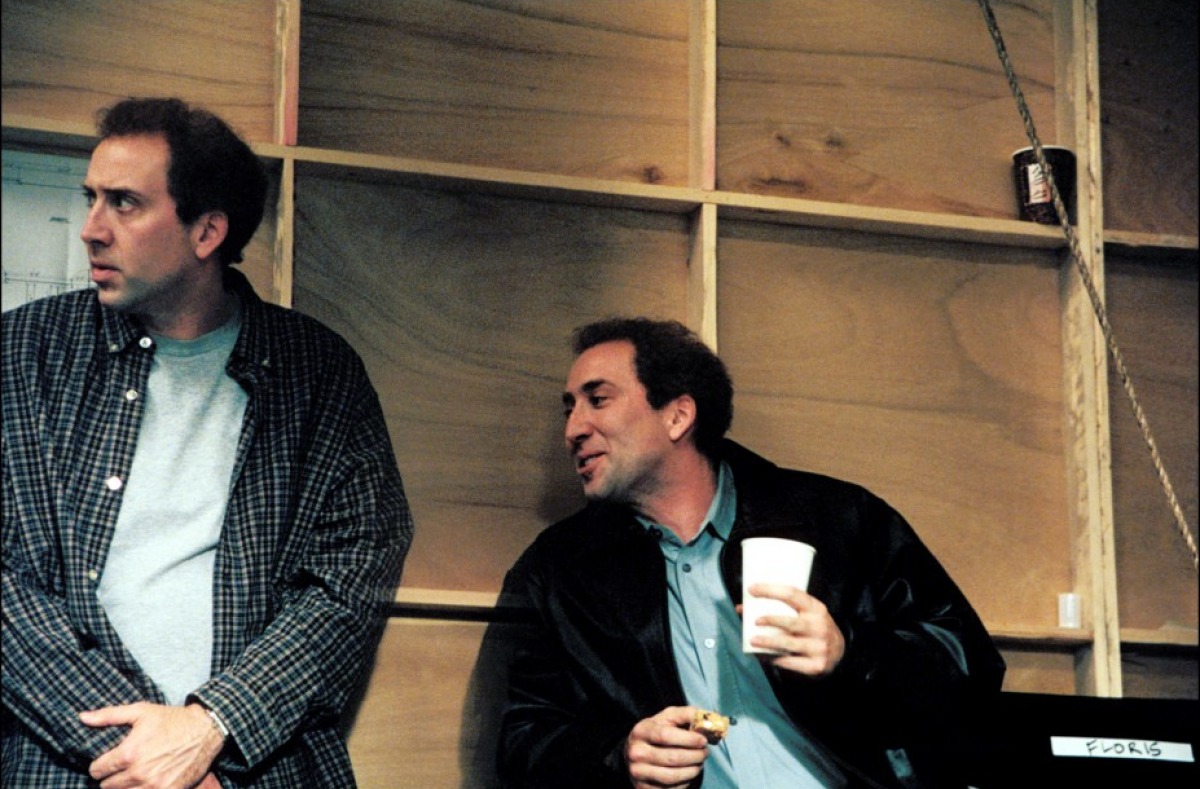
Charlie Kaufman reappears on this list, this time as a screenwriter , of a film in which Charlie Kaufman struggles with writing a screenplay for a film. In an age in which meta-humor dominates the internet and TV nobody in cinema has perfected the art of it as much as Kaufman.
Bitingly satirical of Hollywood and critical of himself, the film is darkly comic. Yet this isn’t only Kaufman’s achievement. Spike Jonze uses all his experience from making music videos and safely navigates the viewer through different times and places while delivering every punchline and making sure to always find inventive and smart visuals.
Top it off with a great Nicolas Cage performance as both Charlie and Donald Kaufman, and you got yourself a small masterpiece.
12. El Topo (1970, Alejandro Jodorowsky)
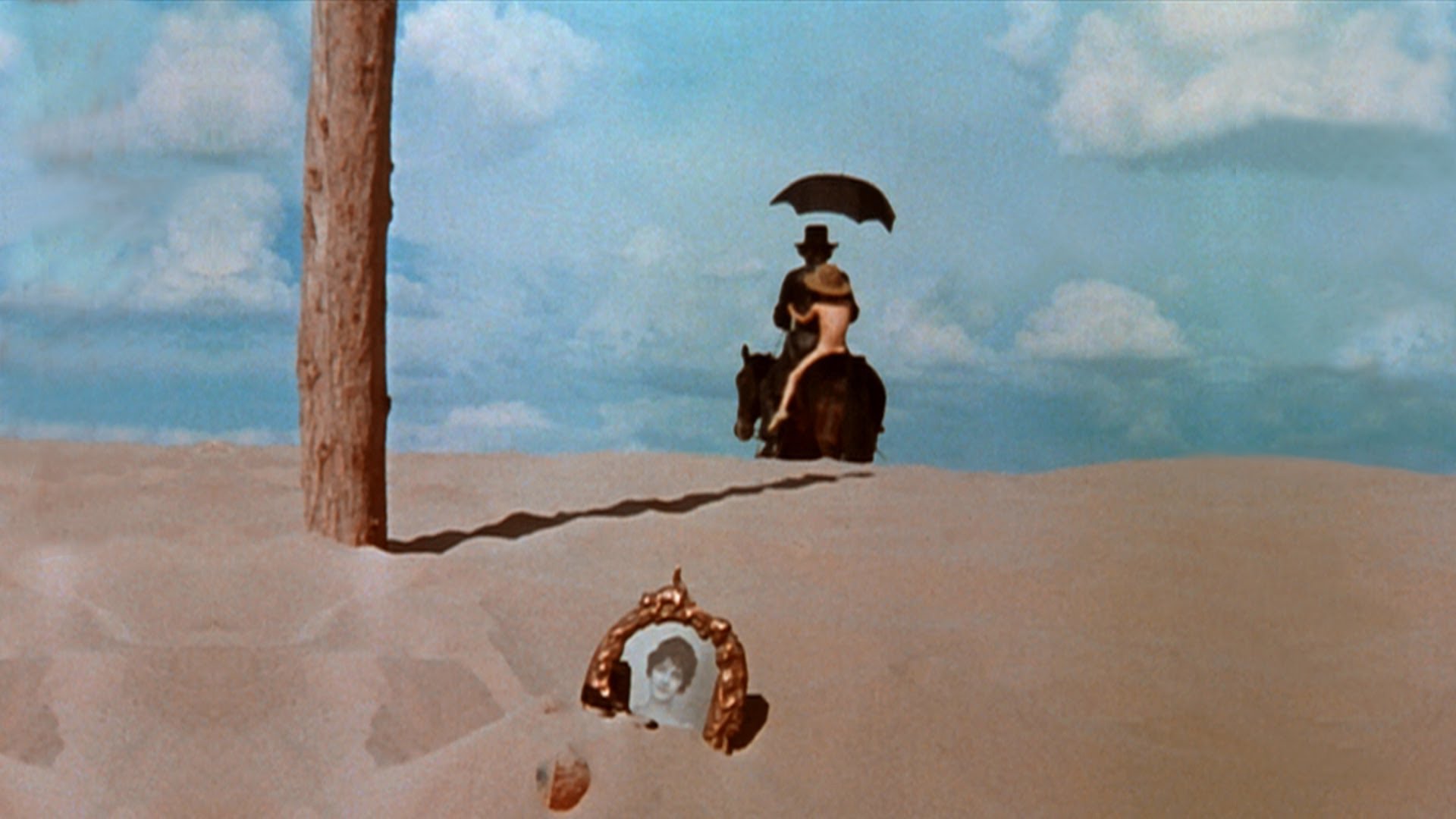
Nowadays the tradition of the “midnight movie” is sadly practically dead, but there was a time in the 1970s, when the strangest films would gain a cult following by playing in cinemas at midnight for a longer while, and through word of mouth draw in curious and adventurous cinephiles. Some people credit Alejandro Jodorowsky’s “El Topo” as the film, that started the craze.
The film itself is a surreal western about an arrogant gunslinger, who decides to be the best of all, so he partakes in a journey to find the 4 best gunmen and to kill them. What ensues from that premise is a surreal and fascinating flood of images, that put the viewer in a dreamlike state.
11. Upstream Color (2013, Shane Carruth)

Upstream Color is one of those rare films, that speak less to the mind and more to the gut… and that’s a good thing. Sure, after repeated viewings the plot slowly starts making sense, as one connects the dots, but the first viewing of this film is a purely emotional experience, and that is something rare in film.
After “Primer” Shane Carruth disappeared for 9 years. He worked on a failed project (“A Topiary”) and then out of nowhere wrote, directed, starred in and scored this small, intimate film, which was shot only on a Panasonic GH2, but the result can visually hold up to any Holywood production shot on a bigger and more expensive camera. The true beauty lies not in the images of the film though, it is the entire feeling and atmosphere it creates.
10. Mauvais Sang (1986, Leos Carax)
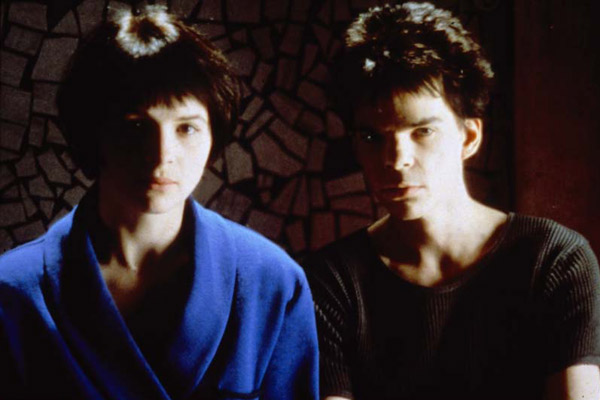
If Godard hadn’t drifted off into obscurity after the 1960s, he could have very well made this movie. While it lacks the intellectual references and funny title cards, in it’s visual style Mauvais Sang looks a lot like a film by the founding father of the New Wave. Yet one shouldn’t think, that Leos Carax is nothing more but a Godard copycat.
In a dystopian future in which a virus is transmitted over loveless sex, a criminal hires a young man to help him steal a diamond so he can pay his debt.
The young man falls in love with the criminal’s girlfriend, and, of course, the coup doesn’t work out without it’s complications. What sounds like a typical genre plot is infused with life and excitement.
Carax does this not only by playing with the conventions and expectations, but also by making every shot breathtaking and interesting. Each shot seems like it’s done in a certain way just to break a convention or feel slightly off. Yet this movie isn more than just breaking rules. In the end it’s involving, beautiful and all is topped off with a wonderful performance by Denis Lavant.
9. Mr. Hulot’s Holiday (1953, Jacques Tati)
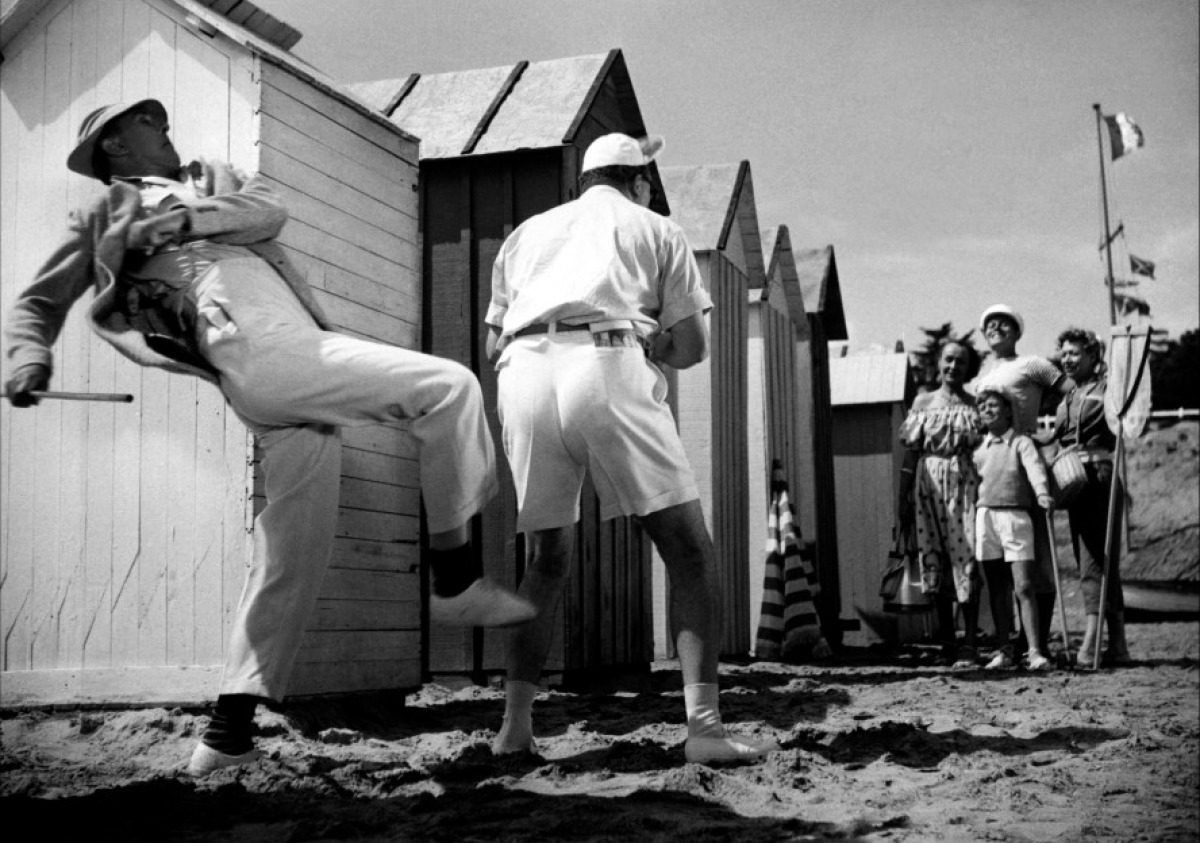
It is said, that Charlie Chaplin didn’t like sound movies, because he didn’t know how to incorporate sound effects into comedy. Ever since the greats of silent comedy like Chaplin, Keaton and the Marx Brothers, it looked like there was no-one to follow in their footsteps in terms of great physical comedy as well as humanism.
Up to this day they left a hole , that was only temporarily filled, by the great french comedian and director Jacques Tati. Like Chaplin, his films aren’t only funny, but beautifully human and critical, yet, unlike Chaplin, Tati had a feeling for integrating sound effects into his comedy, that is unmatched.
Mr Hulot’s Holiday introduces the legendary character of Mr. Hulot to the screen for the first time. He is a kind, tall, funny looking man, who always tries to be polite, but ends up alienating everyone except for children and animals.
The entire movie just revolves around him and his holiday in a nice small seaside town in France. Of course the film takes any opportunity to show us the odd little details in human behavior.
If Tati was one thing, that would have to be a master of observation. Like no other filmmaker he makes us laugh at the way we behave and the unnecessary complications of modern technology. Yet Tati is never cynical, his films belong to the warmest and sweetest to have ever existed and this film is a delightful introduction into a world, that is entirely his.